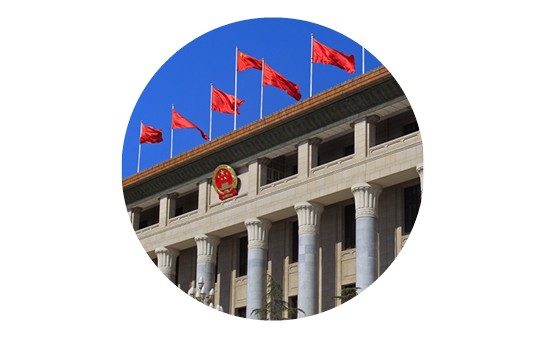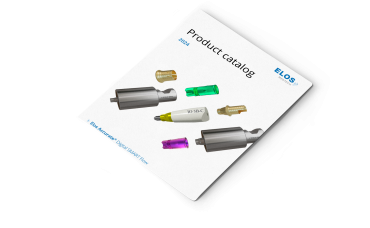The dental implant industry in the Asia Pacific region is advancing rapidly. Notably, China is seeing a strong growth rate as dentists are better trained and patient awareness and access to dental care, like dental implants, rises. By 2024, the dental implant industry is expected to reach upwards of a $600M market value with no signs of slowing down[1], making it a lucrative target for dental implant manufacturers.
At the same time, new policies are now in play that control foreign implant makers’ access to the Chinese dental implant market. Only manufacturers that become familiar with how to work within the limits of the new regulations will have the expertise to start or continue doing business in the most lucrative Chinese implant sector: the government-controlled public hospitals.
In this article, we’ll look at five key things dental implant manufacturers need to know about the latest regulation changes in order for their business activities in China to flourish.
1. A brief look at the new policy
At the beginning of 2021, the Chinese deputies submitted a proposal to regulate the high cost of dental implants, a move that will ultimately limit foreign dental implant manufacturers’ ability to sell their products in China.
That same year a "Notification" was issued to collect information on high-value medical consumables, such as dental implants, repair abutments, prosthetic products, and other medical consumables that constitute dental implant systems.
An executive meeting of the State Council, the chief administrative authority in China, was held on January 10, 2022. At that meeting, Chinese deputies officially stated that the program of volume-based procurement on a national level would include dental implant systems.[2]
State order 739 is the approval for the new regulation: "The Regulations on the Supervision and Administration of Medical Devices" which is now publicized and took effect as of June 1, 2021, with an enforcement date of January 1, 2022.
2. The reasoning behind the new policy
Although the official reasoning behind the new policy is a reduction in the cost of the medical burden on patients, we assess that the policy will be much more detrimental to foreign dental implant brands sold in China than meets the eye.
Within the dental implant market in China, the cost of components is not the most significant proportion of patient costs. In fact, the majority of treatment fees paid by patients flow mainly to dentists/clinics and hospitals in the form of hourly charges for services with only a small share used to cover the cost of dental components from implant companies and suppliers. Therefore, controlling foreign products will not control patient costs.
In reality, the most likely outcome of the new policy will be a strengthening of Chinese implant manufacturers’ competitiveness and market share with limitations on foreign companies’ access. The policy incentivizes the protection of domestic brands in China and the localization of dental products.
The new policy allows more flexibility for Class III medical devices; after all, these are advanced technology and not easy to develop or acquire.
3. The hidden risks built into the policy
The policy is one that we expect to be detrimental to many foreign dental implant brands sold in China. Currently, no foreign implant manufacturers are considered domestic brands in China (even Korean brands), so the risk is high that many of them will lose out on a significant market share in the future.
Implant manufacturers who want to enter China will have to navigate the new regulations and face costly investments unless they work with a partner familiar with the new laws and local manufacturing requirements.
What’s more, we predict that the policy will be especially detrimental within the most important market segment: the public hospitals. The public hospitals in China are by far the most lucrative market over privatized clinics, accounting for more than 50% of dental implant sales. Patients favor the public sector as a reliable and qualified provider of treatment centers. They are known for better patient results due to their average high technical level and the Chinese National Healthcare System.
According to the latest notification of August 18, 2022, private clinics will also be affected by the new policy.
4. Our predictions related to the policy
For additional context around regulations in China, we refer back to a policy introduced in 2021 in Northeastern China that limited purchasing volume within dental chemical consumables: only 30% of public hospital purchases of Class I, Class II, and Class III products are now allowed to be foreign brands. While various regions will have various policies, this policy is expected to be expanded to more than 20 provinces in the near future.
Since that time, dental chemical consumables have already experienced volume-based procurement and domestic replacement. And as of January 2022, with implantology being confirmed by the State Council to have volume-based procurement—and the voice from the deputies having mentioned domestic replacement as well in their "14th Five-Year Plan"—it leads us to these predictions:
- Using this implementing approach and speed as our guideline for the 2022 policy for implantology, we estimate that the implementation of the 2022 policy might be complete by Q4 in 2022 or Q1 in 2023.
- We also expect that, though previously, all brands could be listed in hospitals' purchasing systems (including foreign brands), this practice will change and that the restrictions for implant systems are likely to be even more severe than Class I, Class II, and Class III dental consumables (like silicon materials).
- Chinese products, considered to be domestic today, will likely become more mature and offer good performance and lower costs compared to foreign brands.
- A longer-term prediction is that all purchases of all classes will come from domestic brands and that foreign brands will gradually be forced out; in other words, a silent policy where purchasing would always prefer brands registered in the system with the priority being domestic brands. This implicates the importances of becoming a domestic brand.
- A worst-case scenario could be that foreign implant systems brands might not have access to public hospitals for Class I and Class III products—or perhaps only in a few exceptions, for instance if a domestic/Chinese brand cannot replace the required solutions.
5. How to get ahead of the policy to ensure success
This calls for immediate action: to compete and grow, it is becoming imperative to become classified as a "domestic" brand in China, acting as the Legal Manufacturer to be able to sell dental implant products into public hospitals in the future.
It’s a potentially lengthy process to adhere to the requirements, but with an entrusted partner handling the process, setup and timelines can be decreased from years to several months.
As a reliable and ready partner to dental implant firms like yours, Elos Medtech has already completed the required process to comply with the requirements of an entrusted partner/supplier with an approved business license in place. Our manufacturing site in Tianjin, established in 2010, has the technology and capability to operate as an entrusted partner for Class I and Class III contract manufacturing services, including at the component level for Class I and all stages for Class III.
For more in-depth information about the requirements of the new policy, how to become a domestic brand, and strategies to help ensure your success in China, read the other blogs in our “In China for China” series.
[1] Dental Implants Market Size, Share & COVID19 Impact Analysis | China | 2021-2027 | MedSuite | Includes: Dental Implants (Premium, Value, Discount, Mini), Final Abutments (Stock, Custom Cast, CAD/CAM) & Surgical Guides
[2] Source: Heyihui Medical



